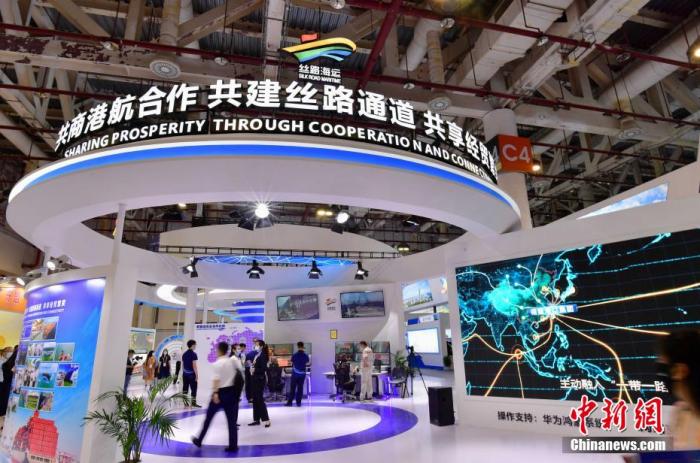China News Service, Xiamen, September 11 (Zheng Jiangluo) From the 9th to the 11th, the 21st China International Fair for Investment and Trade was held in Xiamen. The experts at the meeting focused on green development to deepen the BRICS partnership in the new industrial revolution. Provide new reference.
"Green development is an important connotation of the transformation and upgrading of the industrial chain and supply chain of the BRICS countries. It is an important measure to build a community with a shared future for mankind." said Zhu Liyang, president of the China Circular Economy Association. There is an urgent need to accelerate the promotion of green industrial development, and more rapidly enhance the overall green national strength and international competitiveness.
The picture shows guests visiting the CIFIT exhibition hall.
Photo by Zhang Bin
Many experts at the conference believed that green development has become an important trend in the world economy and the only way to enhance the competitiveness of the BRICS countries.
Xie Zhenhua, China's special envoy for climate change affairs, stated that, driven by countries' response to climate change, green recovery and implementation of relevant policies and actions, the world will usher in a green and low-carbon technological revolution and industrial transformation.
Xie Zhenhua pointed out that green, low-carbon, and circular development will drive tens of trillions or even hundreds of billions of dollars in investment and markets around the world.
"The cause of green and low-carbon circular development has a long way to go, and there is more to be done."
Zhu Liyang suggested that when building the BRICS industrial revolution partnership, industry associations, chambers of commerce and other relevant organizations of various countries should focus on the proposition of the era of green transformation and upgrading of the industrial chain and supply chain, strengthen mutual learning of green policies, and develop green Business cooperation.
Specifically, it is necessary to establish a cooperation mechanism at the industry organization level to carry out normalized and pragmatic cooperation in popularizing green concepts, exchanging green technologies, cultivating green talents, and organizing green exhibitions.
Feng Baiwen, global chairman of KPMG’s Global China Business Development Center and co-head of KPMG China’s infrastructure industry, also said that the current global transition to a green development model has brought tremendous benefits to companies and institutions that can provide leading low-carbon growth solutions. opportunity.
"Therefore, the transition to environmental protection has become an important task for enterprises and financial institutions, and it will also become a new competitive advantage for enterprises."
"Technology is the most important for future technological innovation and the realization of green and low-carbon circular development." Chang Jiwen, deputy director of the Institute of Resources and Environmental Policy of the Development Research Center of the State Council, said, from green enterprises to green supply chains, from pollution prevention to low-carbon Carbon development requires improving the allocation efficiency of natural resources and ecological elements.
The BRICS countries should formulate complete standards for green products, green services, and green markets to promote the formation of a green market system.
(over)

